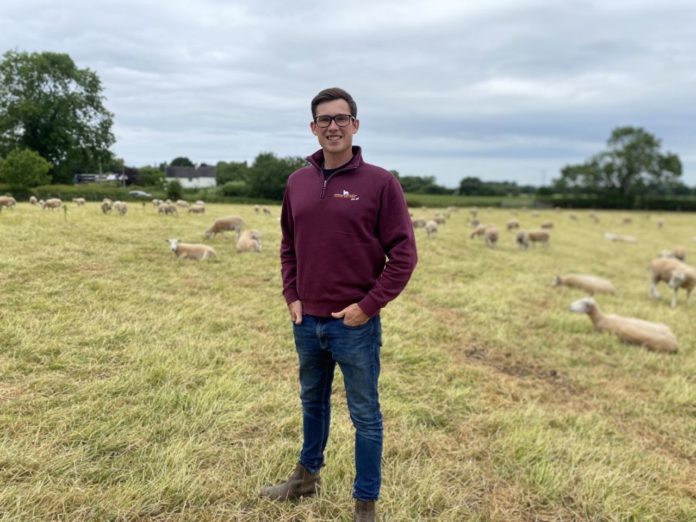In this week’s sheep segment, That’s Farming, profiles Will Roobottom of Cowley Hill Farm. He discusses his return to farming, establishing a sheep enterprise and his family’s business, supplying high-quality fodder and bedding to the equine market.
24-year-old sheep farmer, Will Roobottom, can trace his farming roots back to the 1880s, more than ten generations.
When he was younger, he was passionate about farming, but this interest faded away through his teenage years, and he looked to become an accountant.
Then when he was 16, he came back to the farm for the summer and “became hooked”.
Subsequently, he then rejected an accounting apprenticeship and headed to Bishop Burton Agricultural College for two years, where he studied all aspects of the industry.
He then ventured to Harper Adams University to study Agriculture with Farm Business Management for four years. While pursuing his studies, he worked on the farm where possible and developed what is now a 160-ewe flock.
Will now farms on a part-time basis, whilst working for an agricultural marketing company, Flame Marketing. His primary responsibilities include social media management, video editing, graphic design and blog writing.
The Hamstall Ridware, Staffordshire native, developed his pedigree Lleyn sheep enterprise in 2015.
“Before that, we had not had any livestock on the farm since we stopped milking before I was born.”
“Going to Bishop Burton Agricultural College opened my eyes to working with livestock. Our main enterprise is producing fodder for the equine market. We have 200 laying chickens which we sell eggs locally.”
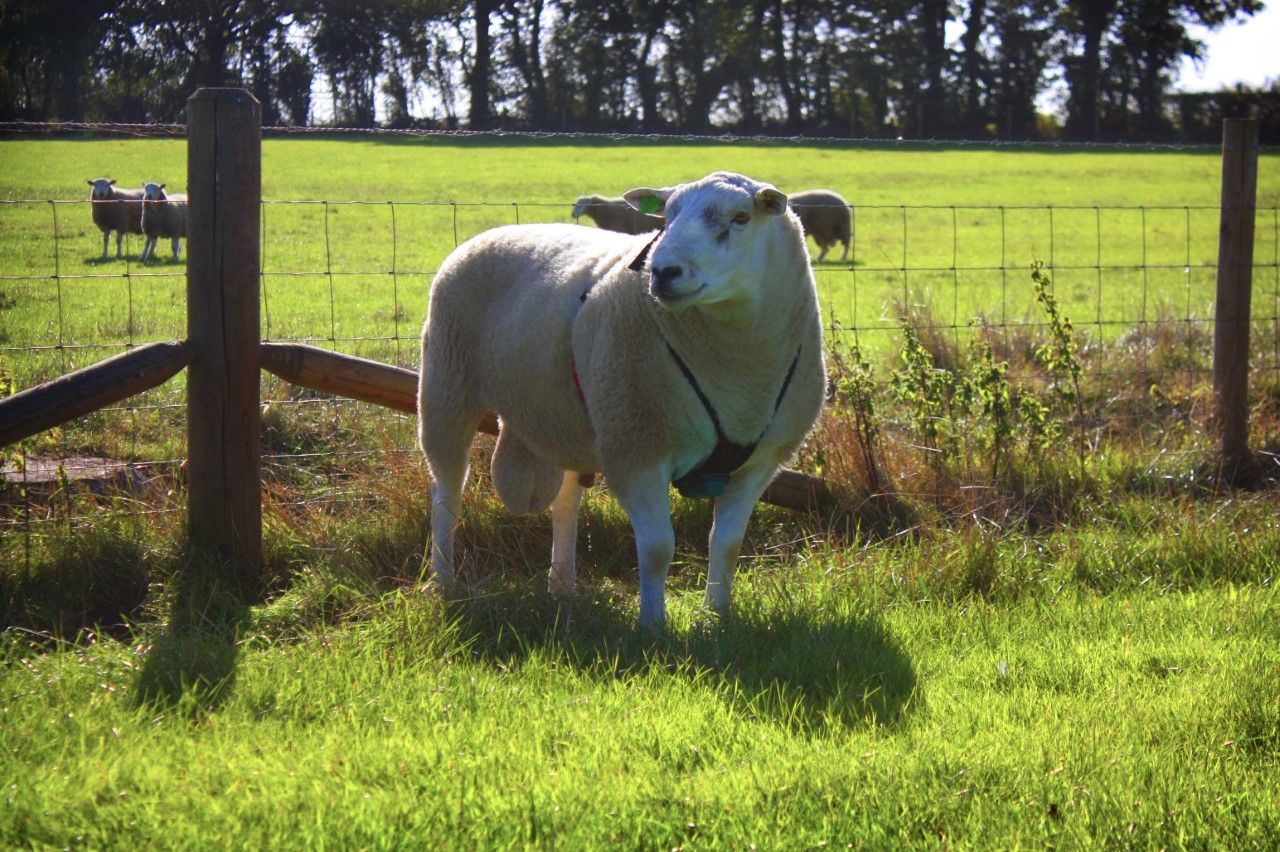
Cowley Hill Farm
William works as a shepherd overseeing the Cowley Hill flock, with assistance from his family.
“Lleyns are a great maternal breed, easy lambing, high-output, low input, with a high-health status. Also, they are self-replacing, so you do not have to buy in replacements.”
“They have good quality carcasses for a maternal breed. Therefore, you can hit two markets: fat and selling breeding stock.”
He acquired nucleus ewes to lay the foundations for the flock in 2015 but has since retained females as replacements to increase numbers.
The flock now comprises 160 ewes, with 45 hoggs and lambs lambs, 4 breeding rams and 10 shearling tups to sell for breeding.
The family operate an indoor lambing system from February 1st and strive to achieve a compact lambing season using teaser tups.
“Due to lambing early, the weather does not work on our side for this time of the year, so we lamb inside.”
“It also allows us to keep a better eye on the ewes and their rations to ensure that they are getting the right nutritional intake.”
They keep their highest-performing ewe lambs for replacements and sell the remainder for breeding.
They send all tup lambs to their local butcher – apart from the highest performing – which they retain to sell as shearlings for breeding.
“Our main aim is to produce a maternal ewe which improves performance every generation, whilst still producing a good carcass.”
His breeding policy is as follows:
- Milky ewes (High 8-week weights show good milk production);
- Prolificacy (Choosing twin/triplet-born lambs rather than single);
- Lambing ease (cull out ewes with lambing problems);
- Longevity (Keeping bloodlines going with ewes that produce for longer);
- Good confirmation (higher muscle depth) – Not imperative;
- Also, good feet;
- To breed to type (Pedigree Lleyn standards).
“For a perfect world, a ewe would have all of these traits. Some ewes perform better in other aspects than others,”
“So, I must do my best to improve these traits, but with the thought that no ewe is perfect,” explained the member of Lleyn Society – Midlands Breeders’ Groups and National Promotions Committee and Young Farmers – Chase Young Farmers.
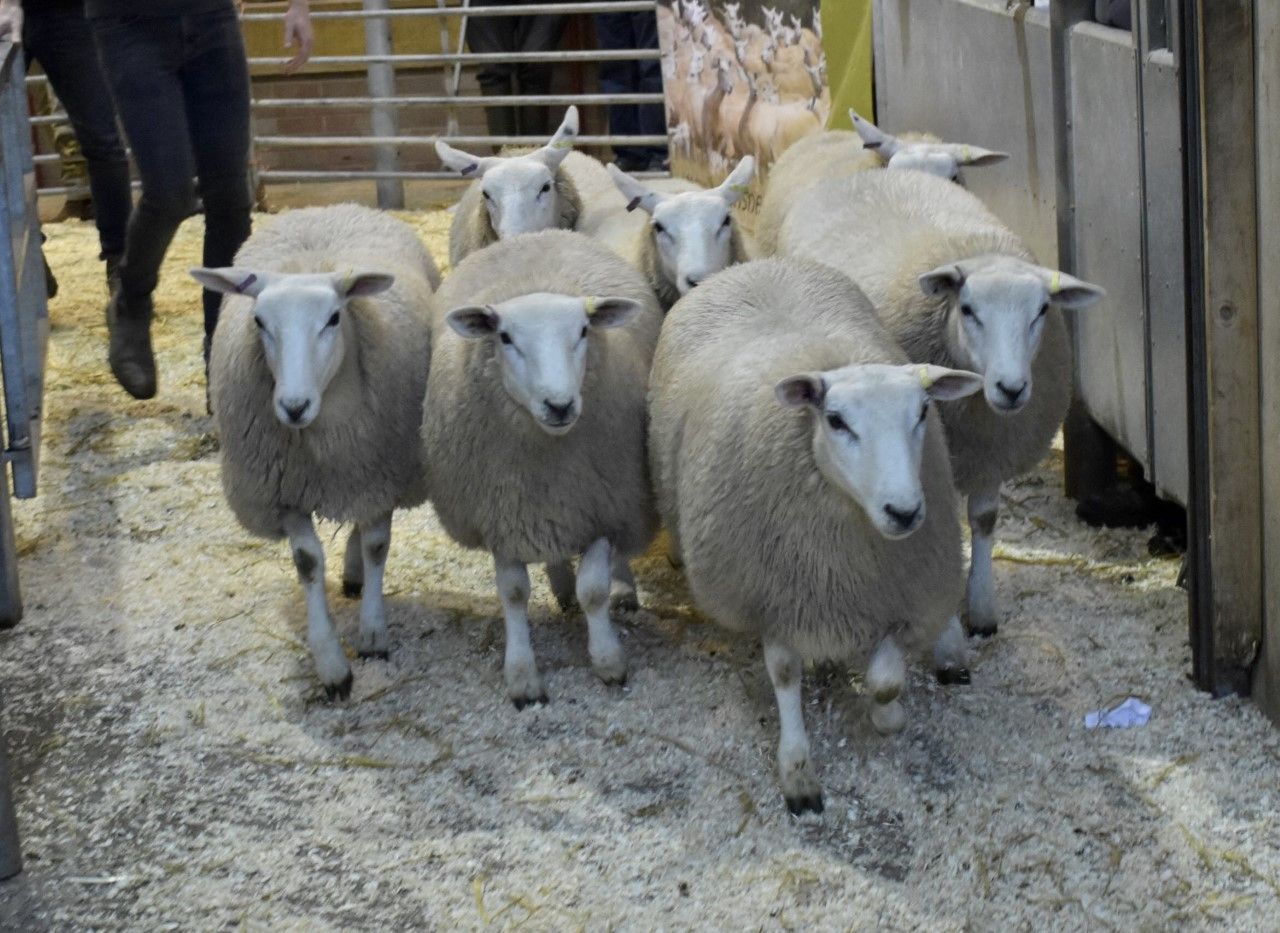
Genetic improvement
Will’s biggest passion in agriculture is integrating technology into farming to improve productivity and efficiency.
“This is because I just love seeing development, whether it be crop yield, meat quality or data analysis, to improve these.”
“On the farm, I have the responsibility of the sheep flock so the general day-to-day runnings, checking all are fit and healthy all the way down to the breeding. This is the part I love.”
He tries to improve genetics through performance recording. Therefore, he records lamb weights monthly to review performance and uses Signet data, such as muscle and fat depth, alongside this “to try and develop the perfect ewe”.
“Away from the sheep, I help dad delivering to our equine-based customers. Our main enterprise on the farm is producing fodder for the equine world, specialising in haylage production.”
“During the summer, I would say I am a key part of the team, throwing my hand at anything from wrapping, carting bales, tedding, rowing up and even hand stacking bales, if required.”
Since embarking on his sheep farming venture, his highlights include winning a first first-prize rosette for a ewe lamb at Lincolnshire Show.
“Another great highlight would be selling ewe lambs to the second-highest price at Ross-On-Wye pedigree sale 2020 (£132 per head).”
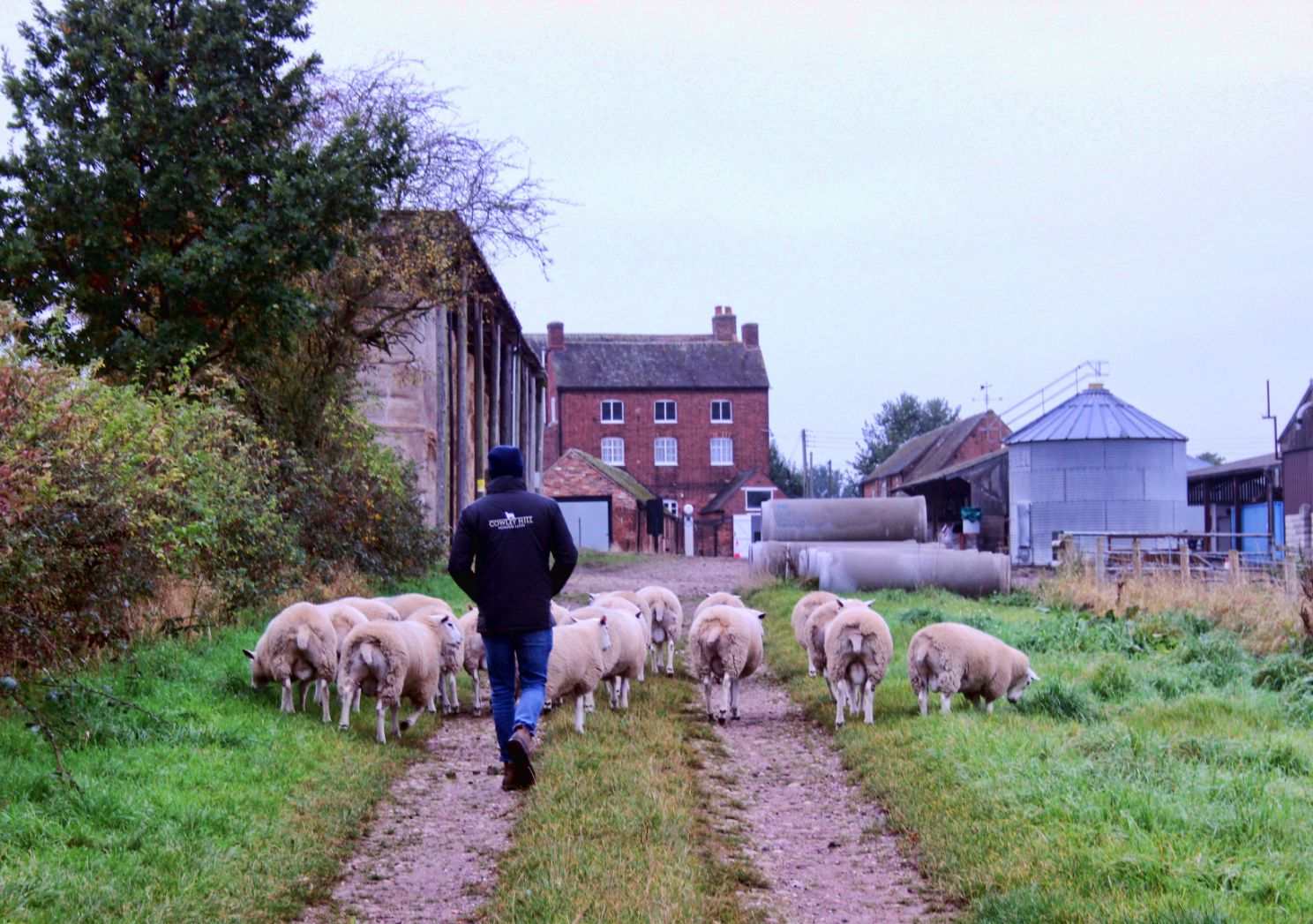
Advice for aspiring sheep farmers
As someone who established a flock from scratch, he provided advice for aspiring sheep farmers.
“To be a successful sheep farmer, you need patience. This is key in all aspects of sheep farming, whether it be working with sheep daily or working on developing the flock’s genetics.”
“Nothing happens overnight. Also, do not miss the fine details. These are where you make or break the enterprise.”
“If you turn a blind eye to things, you can soon see the flock deteriorate and not perform how you would like.”
“My biggest piece of advice is whenever you do anything, buy quality, not quantity. This could be your initial investment into breeding ewes or the products you use such as lick buckets.”
“You pay for what you get, and usually that means cheap is poor quality. This especially come into play when developing your flock. It will take years to improve poor genetics.”
“So, my advice would be to buy less of higher quality and build it up. In the long-term, this will pay off.”
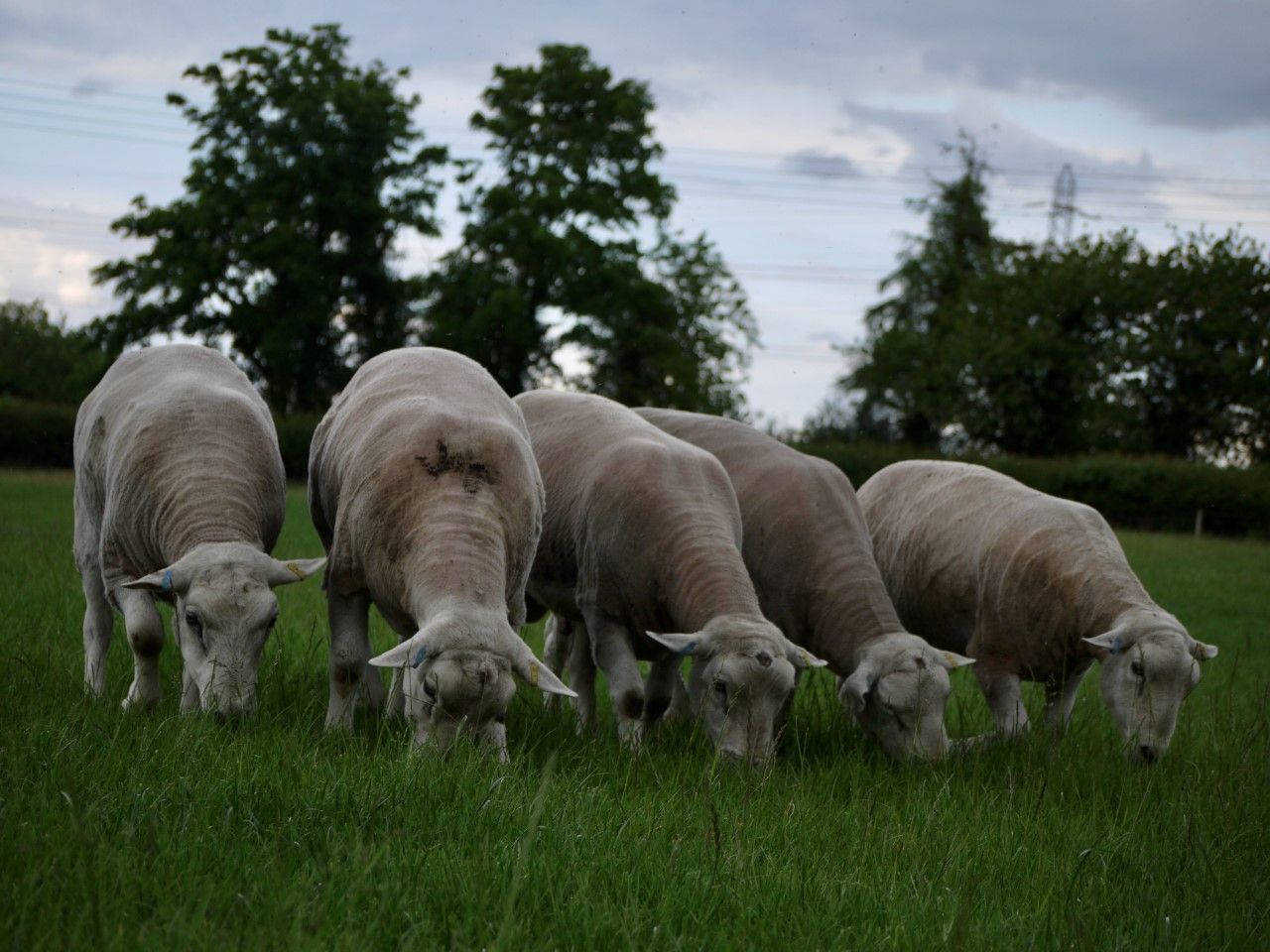
YouTube channel: Cowley Hill Farm with Will
Will created a YouTube channel, Cowley Hill Farm, just over a year ago to show the public and members of the agricultural community how they farm.
The young agvocate is passionate about educating people and portraying farming in a realistic light.
“So, I aim to show people why and how we do things with the sheep and fodder production whilst making it fun too.”
“My follower base is a mixture of public and farmers as there are parts for everyone. I post every Wednesday and Saturday at 7:30 am.”
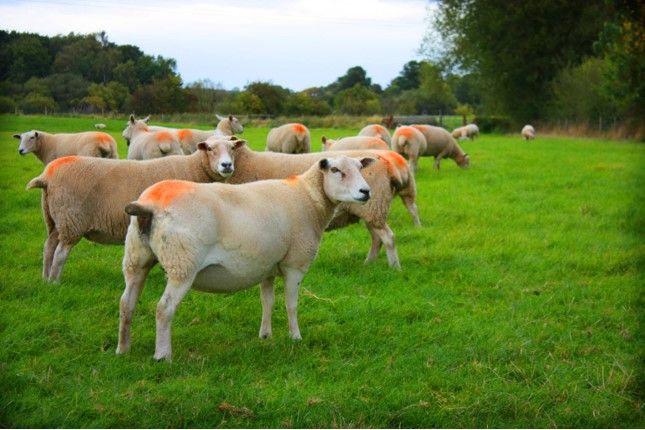
Setting goals
Will intends to grow the family’s flock to 300 ewes by breeding their own replacements whilst continually improving its genetic merits. “If there is room to grow bigger, nothing is stopping us.”
“My goal is to be up there with the best Lleyn breeders in the UK and continually striving for better. Also, I want to win a breed championship. Lastly, I wish to develop my YouTube channel to try and get as many people tuning in as possible.”
“I believe that as far as there is a market for lamb in the UK, there will be sheep farming.”
“The key thing is to strive as sheep farmers to improve efficiency and productivity as margins. As an industry, if we stand still, then you will not survive.”
“I think there is a bright future for UK agriculture. We are world leaders and have some of the best land for production in the world.”
“With the next generation ever so positive, it is so vital that we paint a great picture for the sector and get the British public to back British farming.”
To share your story, email – [email protected]


